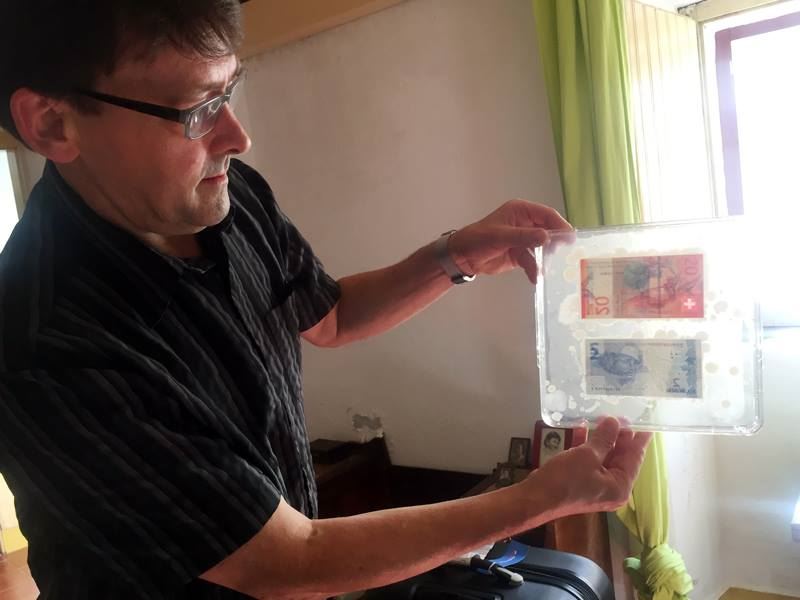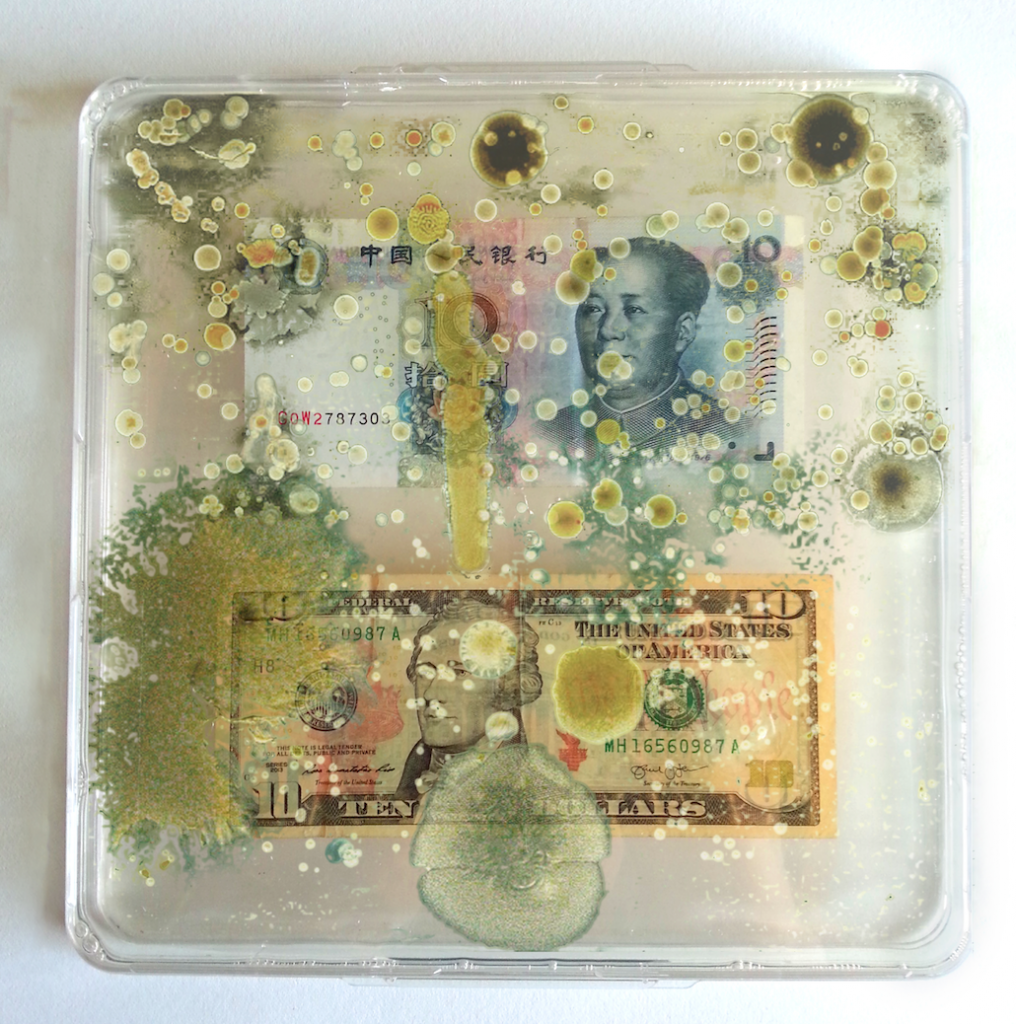
MEMBER SPOTLIGHT
AUGUST 9, 2021
This week we recognize the work of artist Ken Rinaldo.
Scientists have identified up to 3,000 types of bacteria on dollar bills from just one Manhattan bank. Most of the bacteria found were skin, mouth, and vagina microbes according to a study conducted by the New York University Center for Genomics & Systems Biology. Bacterial cultures, fungi, and viruses finding transport on monetary exchange systems do not respect or understand borders.
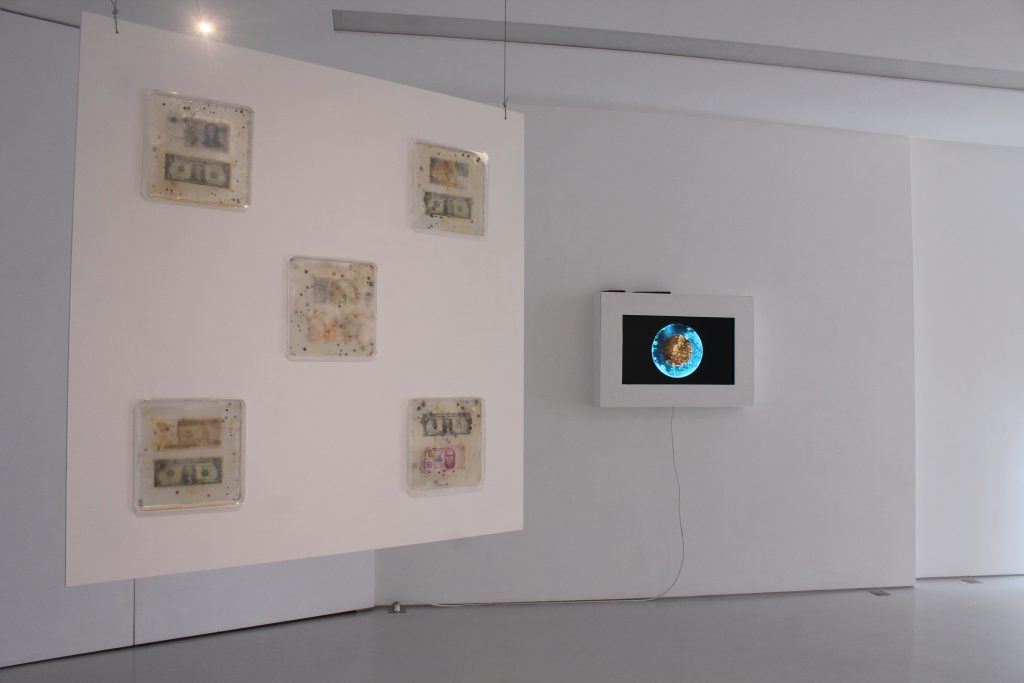
There are no visas or passports for microbes that hitch rides from hands, noses, and genitalia. Money travels freely nationally and internationally. Cash is a vector of biological cultures and nationalist interests and traded globally.
Money possesses formal symbolic memories of a colonialist past, such as the monarchies ruling over their colonies for generations. The British Royal Family one of the oldest monarchies, ran the Royal African Company, extracting 5000 enslaved peoples each day, and becoming the primary driver of slavery in the Americas. Yet the queen’s image still remains on most money in former colonies such as Canada, South Africa, Australia, etc, though the royal family has changed its image through clever public relations, focusing instead on diplomacy and family ceremonies and weddings.
England was not the only player in the game of colonialism. The United States, Belgium, France, Germany, Italy, Japan, Denmark, Norway, The Netherlands, Portugal, Russia all have their colonialist pasts.
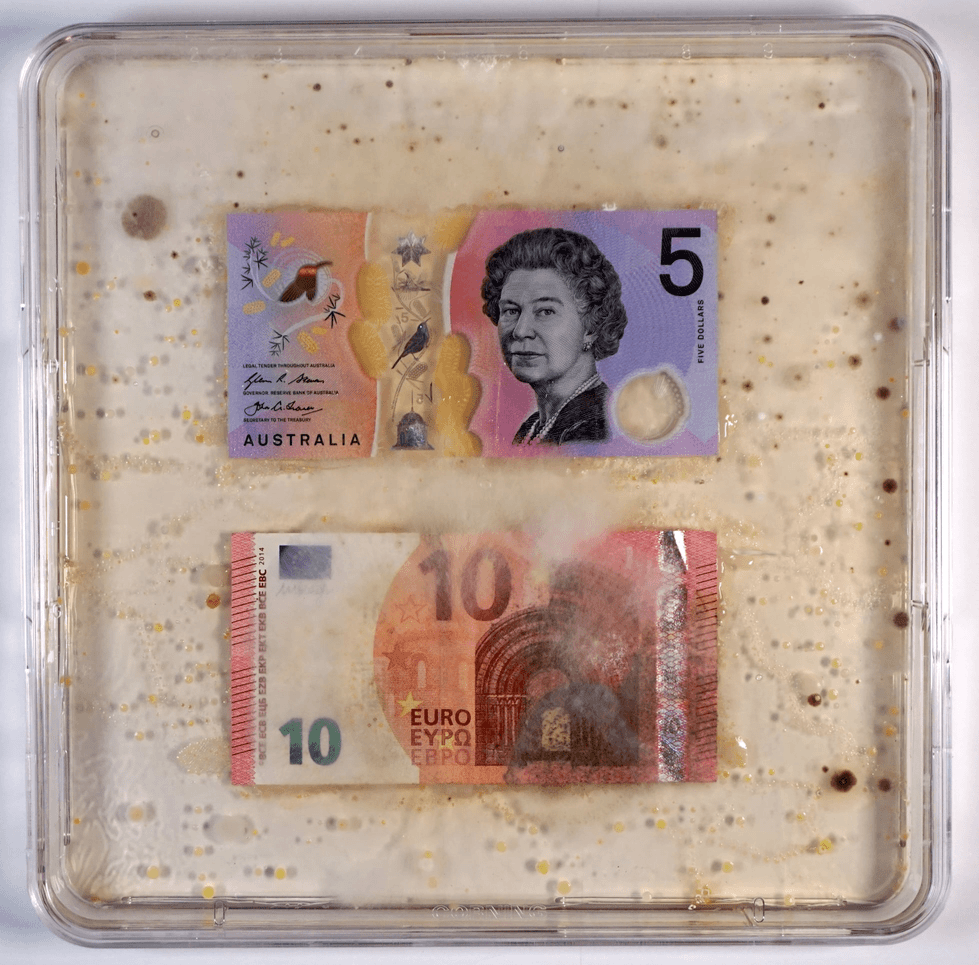
As money is a potent signifier of identity, nationalism, and a symbolic medium of exchange, it also possesses constitutional beliefs with iconic invocations of wealth and national trust. In God and monarchies, we trust. Money implies all the attendant deities and symbols of nationalist power and oversight.
Now we have emerging DATA colonialism, where a select few corporations (Google, Facebook, Apple, Microsoft) collect and extract data and cookies from individuals, and use analytics to become a means by which wealth is collected and national power is exerted. Cryptocurrencies can be seen as another form of colonialism, benefiting mostly wealthy folks.
Microbes, however, are the original colonizers of us. We can even trace their influences back to the origins of eukaryotic cells. Author Steve Mann writes in his book 1491 that Indigenous peoples of the Americas were a keystone species, which affected the survival and abundance of a myriad of other species. In the colonization of the Americas, diseases like smallpox and measles took a massive toll on indigenous populations.
With the outbreak of the Sars Virus and now the Coronavirus, likely both transmitted from bush meat, we are seeing another form of colonization from one species to another, and again bacteria and viruses are equal opportunity travelers.
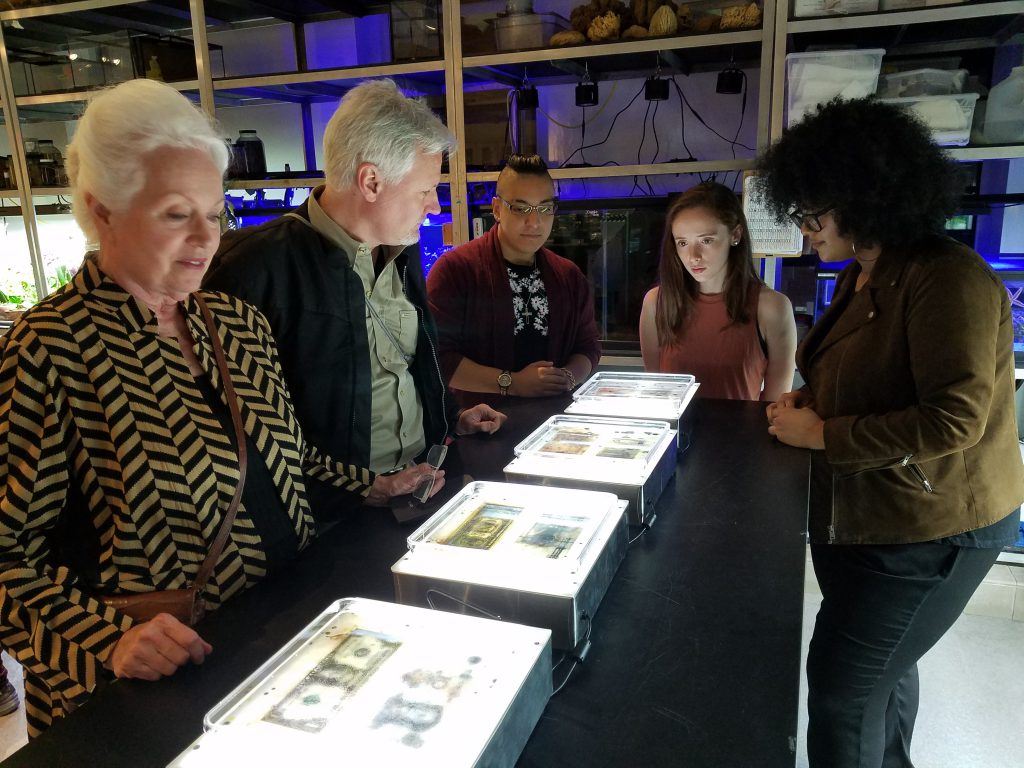
Ken Rinaldo is recognized internationally for his interactive art installations, including developing hybrid ecologies with animals, algorithms, plants, and bacterial cultures. His art/science practice serves as a platform for hacking complex social, biological, and machine symbionts. Rinaldo believes that through inventing and constructing techno interfaces, we can amplify the intertwined symbiosis and underlying beauty in natural living systems. Rinaldo teaches neo-conceptual approaches to interactive robotics, bio-art, 2D/3D animation, 3D modeling, rapid prototyping, and broad art practices. He is an Emeritus Professor within Art & Technology in the Department of Art at the College of Arts & Sciences, The Ohio State University. He also recently began teaching a master's class for the Central Academy of Fine Arts in Beijing, China.kenrinaldo.com
Featured Images: ©Ken Rinaldo, Borderless Bacteria/Colonialist Cash at BioArts Lab School for the Visual Arts New York and Mute Gallery Lisbon, Portugal, each in 2017. Text from the artists' website.
Below: Ken Rinaldo holding up his work Borderless Bacteria/Colonialist Cash in the sunlight.
